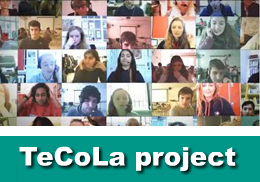
The managers of the project to the UV are the teachers Begoña Clavel Arroitia and Barry Pennock Speck: (Begona.Clavel@uv.es, Barry,Pennock@uv.es)
The TeCoLa project brings together experts in the fields of foreign language education, intercultural telecollaboration, teacher education, and technology mediated pedagogy from six countries (Belgium, France, Germany, The Netherlands, Spain and UK). TeCoLa was preceded by several European projects exploring the use of telecollaboration. The team, led in Valencia at that time by José Ramón Gómez Molina, began to implement this methodology at the university level (NIFLAR) and later on it was applied to secondary education (TILA: http://www.tilaproject.eu/). Right now, our focus is on developing and testing innovative gamified telecollaboration approaches for secondary schools that address diversity issues in intercultural and content integrated language learning and teaching. Gamification applies elements that are found in traditional games to online teaching. For example, activities usually have a time limit and more points are given to those who finish first. Students receive rewards and carry out challenges. As an incentive, the results appear on leader boards. An example of gamification in the Virtual World of TeCoLa is the Gymkhana (also known as Treasure Hunt) and the game of Snakes and Ladders:
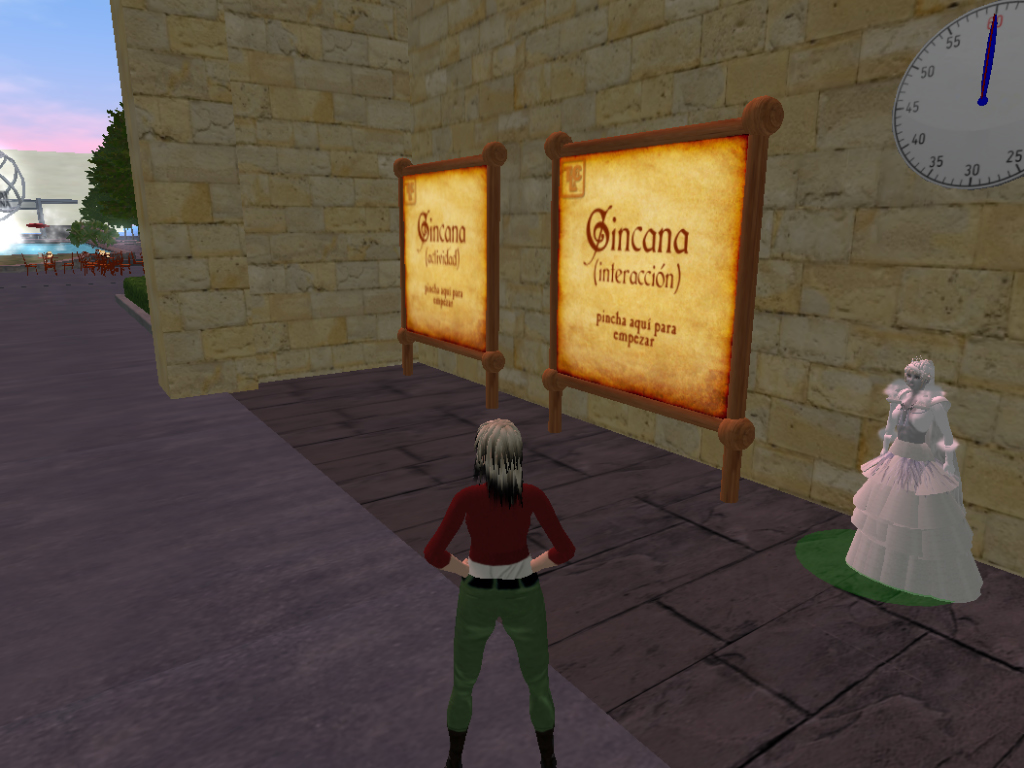
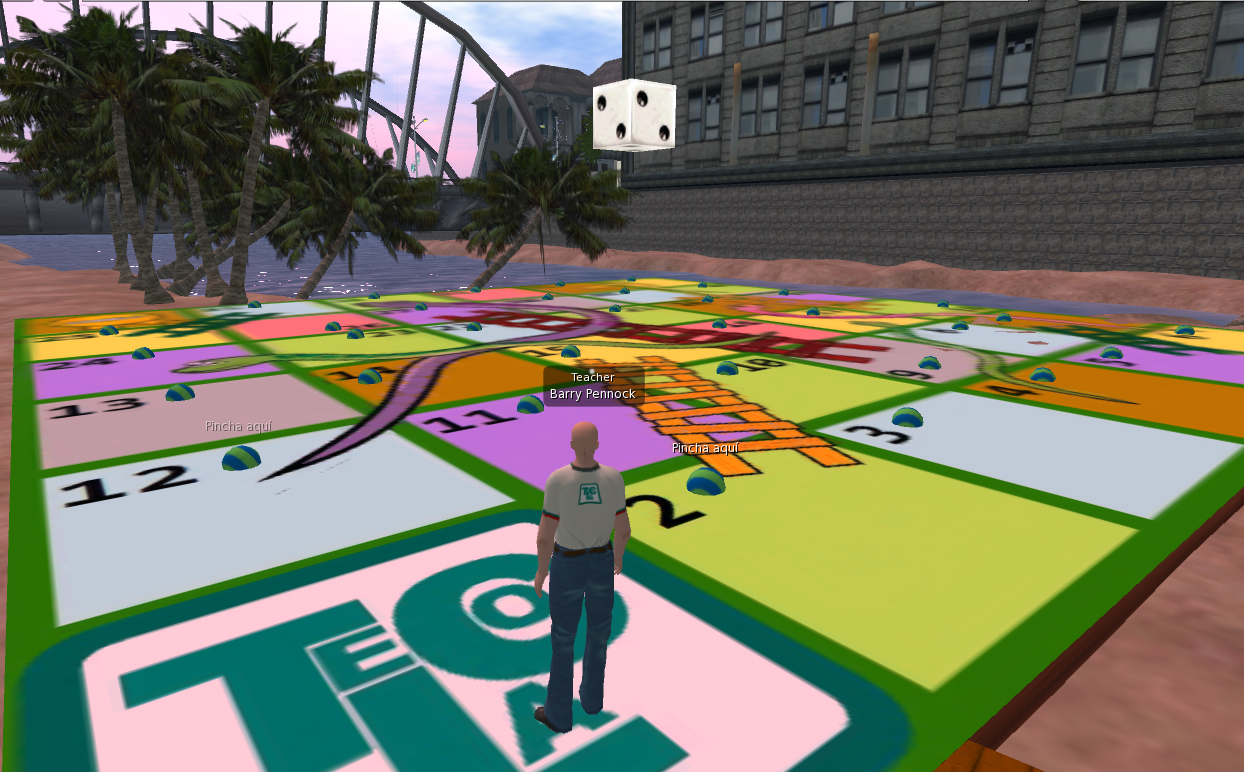
Gymkhana and Snakes and Ladders game in the TeCoLa Virtual world
At the very heart of the learning process are authentic task-based interactions among peers from different socio-cultural, educational and language backgrounds using telecollaboration to communicate and collaborate internationally.
The Erasmus+ project TeCoLa pays special attention to
- authentic communication practice in the foreign language,
- intercultural experience, awareness raising, and competence development,
- collaborative knowledge discovery in contexts of content and language integrated learning,
- learning diversity and differentiated pedagogical practices.
TeCoLa attempts to harness gamified telecollaboration technologies to enhance foreign language teaching and learning. Virtual world interaction, video communication, and gamification are deployed to support online pedagogical exchanges between secondary school students throughout Europe.
TeCoLa aims:
1. To empower pre- & in-service teachers to use telecollaboration and gamification in order to:
- facilitate intercultural communicative competence development as a prime objective of foreign language learning and European citizenship building. With this in mind, we have designed a series of interactive online tasks to address these aspects. These are tailored to the specific needs of each group of students who employs them see https://sites.google.com/site/tecolaprojectoer/tasks/tasks-spanish).
- create conditions for real-life communication in a foreign language in lingua franca or tandem constellations with a potential for incidental language learning. These conditions are reproduced in our Moodle environment (http://tecola.eu/moodle/) and in the virtual world created for our project https://sites.google.com/site/tecolaproject/virtualworld). The Moodle environment allows students to participate in video conferences, get involved in synchronous activities together, upload videos, chat, etc. In the virtual world, students enter as avatars and perform a series of activities in pairs or groups that encourage real communication with students from other countries).
- foster autonomous collaboration and authenticity as key principles of task-based learning.
- strengthen personalized learning and learner agency as part of a differentiated pedagogy approach.
2. To internationalise education by integrating telecollaboration in schools to innovate, enrich and make language-teaching programmes more meaningful and effective.
3. To contribute to the integration of all pupils regardless of their background by promoting intercultural dialogue in telecollaboration events among diverse populations of pupils from secondary schools across Europe.
4. To exploit the possibilities that web 2.0 applications, virtual worlds, serious games and gamification offer with a view to diversifying teaching and facilitating content integrated language learning alongside intercultural dialogue and play in telecollaboration encounters. In what follows, we show some of the possibilities of the virtual world. Students can sit on the terrace of the Santa Catalina horchatería in the world in Spanish (Valencia) and learn about our culture while chatting with Spanish native speakers:
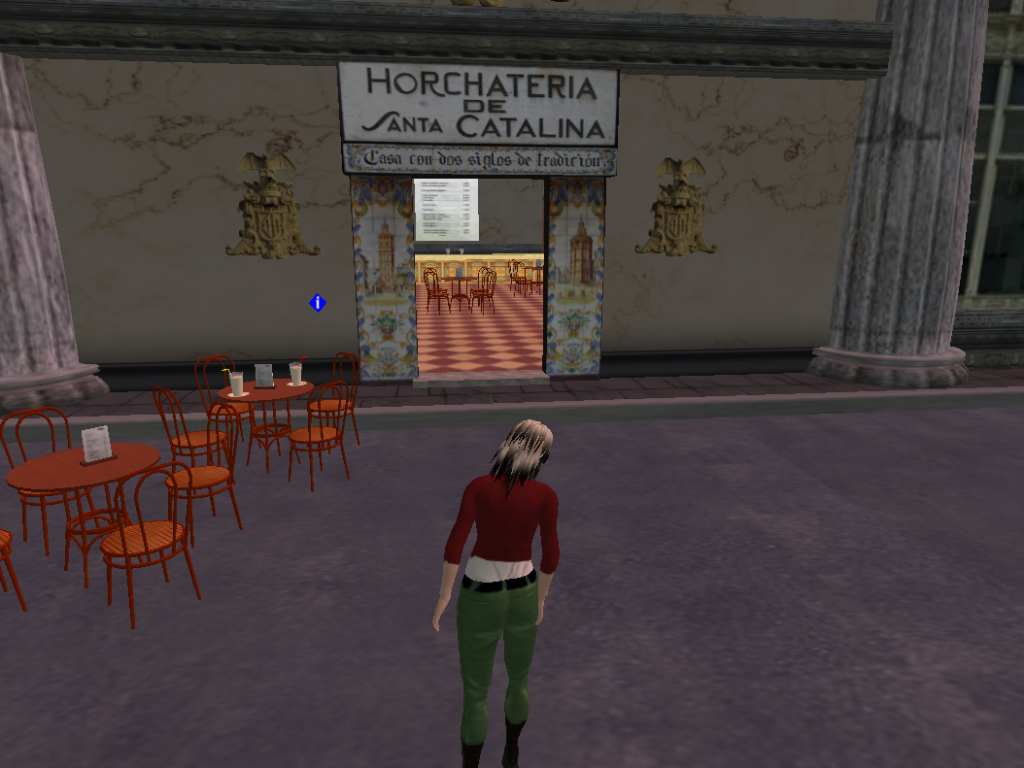
They can also visit the Serrano Towers and from there start the gymkhana guided by a robot that is capable of answering their questions:
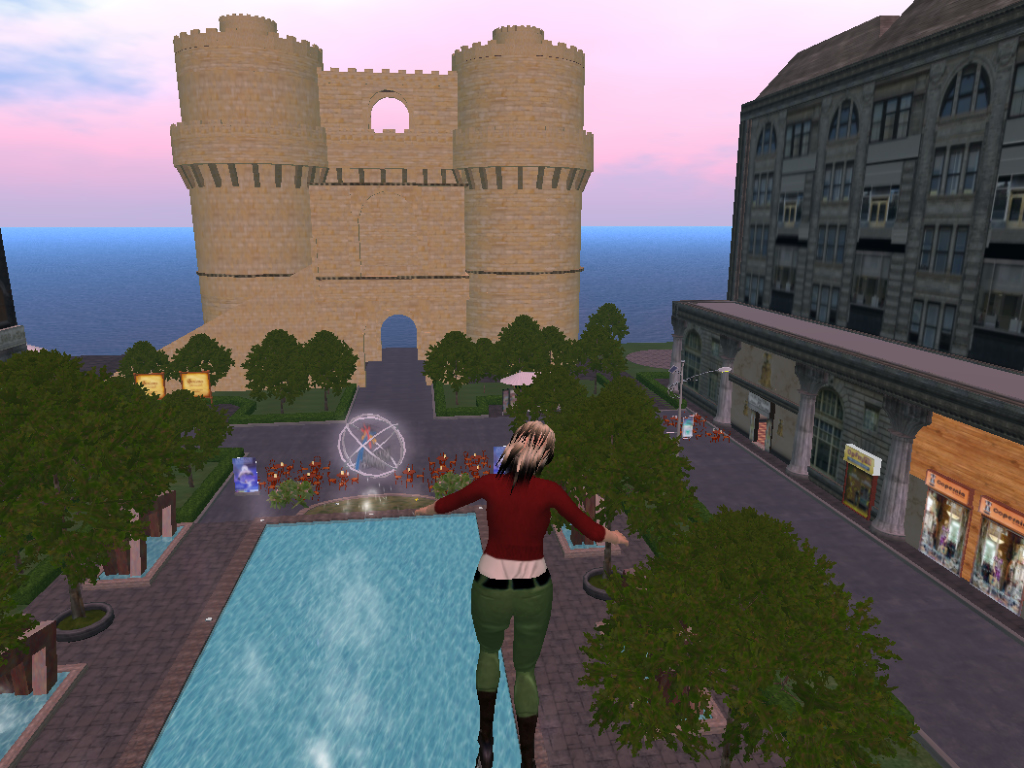
Another type of activity at their disposal, in the different territories, can be found in the "interaction points" where students have to carry out a series of activities on a topic designed by us or by their teachers using interactive boards that can project information, show videos or PowerPoint presentations, among other possibilities.
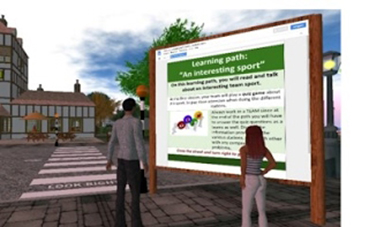
At the moment, several Valencian project partners (Salesianos, CEIP Gloria Fuertes, San Cristóbal Mártir I and IES Monserrat) are coordinating telecollaboration activities with several primary and secondary education schools in Bordeaux, London and Utrecht.
TeCoLa Project partners (2016-1-NL01-KA201-022997)
UNIVERSITEIT UTRECHT (coordinating institution), The Netherlands
LINK LINGUISTIK & INTERKULTURELLE KOMMUNIKATION (LINK), Germany UNIVERSITY OF ROEHAMPTON, United Kingdom
UNIVERSITEIT ANTWERPEN, Belgium
UNIVERSITAT DE VALÈNCIA, Spain
TRANSIT-LINGUA, France
3DLES, The Netherlands
Contact:
https://sites.google.com/site/tecolaproject/home-1
info@tecola.eu
https://www.facebook.com/groups/tecolaproject
https://twitter.com/tecolaproject








